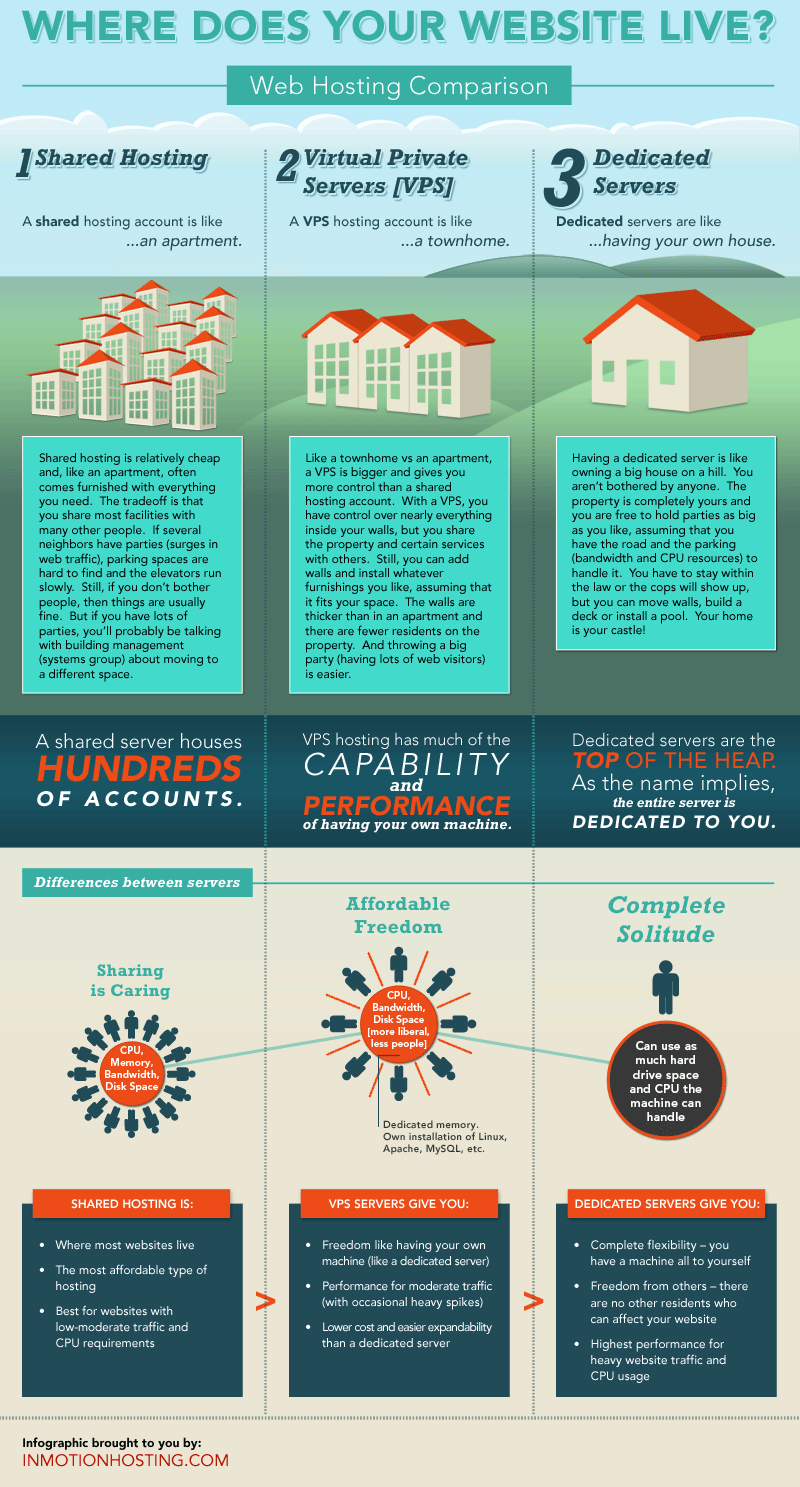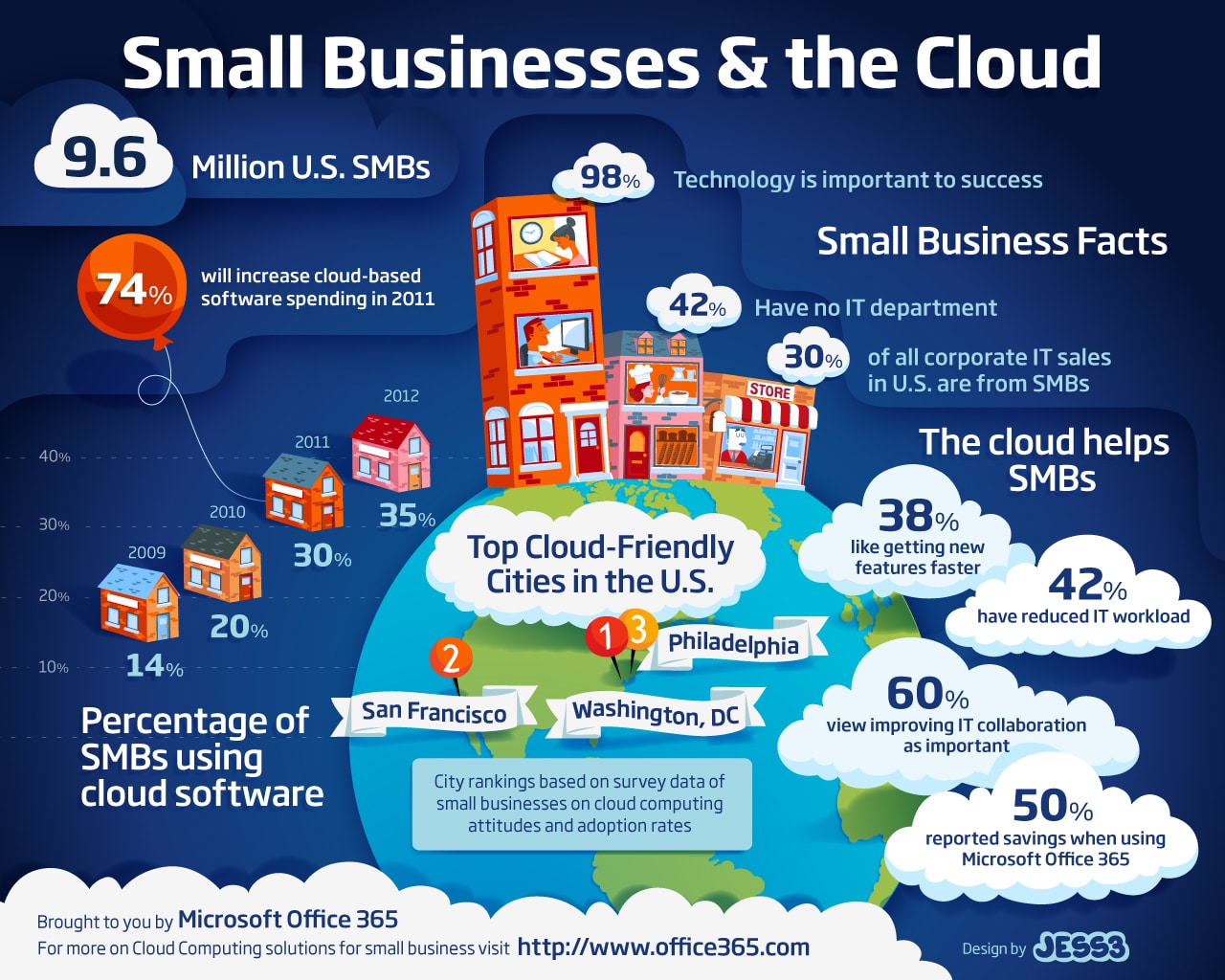
It is difficult to achieve the best ranking for your website without SEO . If you adopt the right strategy, it will be easy for you to achieve high search engine rankings. An SEO profile is incomplete without SEO hosting. SEO hosting refers to use of traditional and nontraditional methods to optimize a website or blog. You will come across several companies which offer this type of hosting. Hosting can affect your search engine rankings to a large extent. It will determine whether a customer will land on your webpage or whether you will lose out in competition to your competitors.
Important factors for SEO Friendly Hosting
Three factors which play an important role in hosting are being discussed. If the hosting which you have opted for results in large downtime your website will not rank well. Websites which experience little to no downtime will achieve higher rankings. Ranking depends on the time which your site takes to load. When choosing SEO hosting it is important to take security into account. This aspect will not have a direct impact on your SEO but can affect the site negatively if hackers hack your site. Take note of the fact that dedicated hosting is the best choice for SEO. Then comes VPS or cloud hosting and lastly shared hosting.
Related reading: How to make your website load faster?
For stronger SEO profile
If you opt for dedicated server hosting you can enjoy fast load time, a stable environment and high security. You will be able to create a stronger SEO profile for the websites. However, it is possible to boost site ranking with both VPS and shared hosting. Shared hosting is capable of handling large traffic. A lot depends on the scripts and applications which are running on your server. If you use shared hosting in the right way, you will not have to worry about traffic. If you notice that ranking of your site is dropping, you can consider shifting from shared hosting to VPS hosting. This will ensure that you enjoy SEO benefits.
Related reading: Best SEO Tips
Link between VPS hosting and SEO
VPS hosting and SEO work well with each other. VPS hosting is the ideal choice when you have complex needs. A VPS hosted site functions faster than shared servers. This is because you will be allocated your own resource which includes storage, CPU and memory storage. You will no longer have to share your resources with other websites. With decent memory usage and disk space your website will function at a constant speed without glitches. The location of the VPS server plays an important role in SEO. If your server is located in the same country as you are in, your website will rank higher.
About SEO success
Stability is an integral aspect which determines SEO success. A website which encounters downtime will receive lower search engine rankings. As your business begins to grow with time, the server capacity must be able to accommodate the business growth. VPS hosting is very flexible and will allow you to upgrade the resources. You will not have to relocate your website to another new server. By opting for VPS hosting you can boost your site’s ranking. A high search engine ranking is an effective way in which you can attract potential customers to your site.
SEO hosting for PBN
If you want to host a private blog network (PBN), you can opt for SEO hosting. Each host will be provided with a unique IP address for individual websites. The greatest advantage of SEO hosting is that it allows a large number of sites to be hosted in a single location. All the sites will be placed under one account which is easily manageable. If one of the hosts has excellent hosting features you can take advantage of those features for several sites on the network.
Some Good SEO Hosting Providers
What Type Of Web Hosting Do You Need?

As a businessperson who wants to make more profit, it would beneficial for you to consider expanding your business by going online. Though you will get several advantages when you try to penetrate into the online market, there are still so many things for you to be familiar with. While there are so many opportunities that you may encounter online, there are still risks involved especially when you do not take some things into consideration.
When it comes to making your business known to potential customers, you need to make sure that your target market or the online users in general know that you exist. It means that your site should be viewed on the World Wide Web. In order to do that, you need to focus on web hosting for online accessibility and visibility.
There are so many things associated with hosting and one of them has something to do with the type of hosting you choose. There are several hosting options that you have to look for. Keep in mind that your business will be affected, negatively or positively, by your selection of a particular hosting type. It would be beneficial to determine several of them and choose which type is appropriate for your needs.
6 Types Of Web Hosting
Be aware that hosting is essential when you want to be recognized online. Though it is a service offered to make your site accessible on the internet, there are still considerations to take. You must know what certain hosting option you need. Several hosting types available in the market include:
1. Shared hosting:
If you own a small business online, then this type is ideal for you. This is considered inexpensive compared to other types because of the nature of hosting. It would make it cheaper for everyone since you are sharing the cost of the server with other users within the server. One obvious advantage of shared hosting is that it is cost-effective. However, there are drawbacks that you need to know about. Since you are sharing with other clients, there will be greater possibilities of exposure that can affect the functioning of your websites.
2. Dedicated hosting:
Even if you start small, but you are confident that your business will grow, it would be advantageous to choose type as you will be expanding your business later on. There are several benefits that this type of hosting offers. You will have full access and control of the server since you are the only one within the server. It basically means that the server is only dedicated to you, which means you have greater security because you do not need to be with other clients that may trigger some security issues. However, dedicated hosting requires a larger amount of money since it is costly.
3. E-commerce hosting:
If you want to create a website that specifically functions as an online shop, then you may prefer this type of hosting as you will benefit from getting software for shopping cart, payment processors and SSL certificates. It may also functions as shared hosting, but the emphasis on this type is in e-commerce.
4. Hosting using VPS or virtual private servers:
VPS focus on using software to distribute physical servers into several virtual servers in which each server is capable of running its own applications and its own system. Web developers as well as industry professionals may make use of this type of hosting to host several websites. As for the advantages, it gives you a complete authority to execute your own software and you can manage multiple sites. There is also an unlimited space offered. As for the disadvantages, it is costly, but not that expensive compared to the dedicated hosting, and there is no good technical support.
5. Linux hosting:
Linux is an operating system that is free or open-source. It allows you to run several applications on your websites such as PHP, MySQL, Perl and XML. You need a type of web hosting that supports this operating system to use the Linux-powered applications mentioned above. In addition, you may consider this hosting if you want to experiment your website by using simple HTML or a more complicated language for creating websites.
6. Blog hosting:
This is basically for those who want to create blogs as the name implies. A lot of features of shared hosting can also be found in this type. However, there are features specifically created for making blogs that are provided by this type of hosting.
What Do You Need?
When choosing what type of hosting you need, several factors should be taken seriously such as:
- The size of your website: You have to determine the size of your website and choose a particular hosting type that can cater your needs regarding the size of your site.
- The amount of bandwidth you need: If there are so many visitors in your site, then you need a larger amount of bandwidth. However, you do not need to choose dedicated hosting if you do not need such amount of bandwidth that this hosting provides.
- The level of security you want: The higher the level of security, the better and safer you feel. However, there is a price that you need to consider. You get high-level security in dedicated hosting, but it will cost you a fortune.
- Power and control: Just like you want to get higher level of security, you may want to benefit from full power and control. If you choose dedicated hosting, then you will get these benefits.
Several factors affect the performance of your website. Taking necessary actions must be done in order to get the most of it. Hosting is important when you want to be known and viewed on the internet. When selecting a type of web hosting, you need to weigh the pros and cons of the types available and find out what is the best for your website.
If you are new to web hosting, then you may have more problems than solutions on how to keep your website effective. Doing some research will surely help you in deciding what to do.
Tips To Choose Web Hosting Solutions for Small Business
Tips, how-to guide and infographics about choosing web hosting solutions for small business. Get the fundamentals and compare web host for small businesses.
Selecting a Web Hosting Company is one of the most challenging tasks for small businesses. There are several factors one needs to consider including their hosting requirements. And to decide the hosting requirements, a small company needs to determine its size, type of industry, target audience, type of site etc. And these requirements largely differ from the list of considerations of a larger business, as the former usually have a limited budget to maintain their online presence. Also, the websites of a small business tend to appear less complex; thus, requires less amount of hosting space.
Compare the hosting company’s functionality and services.
Unlike the large businesses that usually opt for additional services and features, a small business owner would stick to configure the bottom line with a minimum amount of features and services essential for the site, to save the cost. However, there are many hosting service providers offering plenty of complimentary features and services to their clients.
So you can now opt for a hosting plan with various features at an affordable price. Here again, one needs to consider their requirements, when it comes to select additional features and services. Make a list of the hosting service providers offering features and services essential for your business. Conduct a market research before settling for one. Check options for shared, cloud, VPS or dedicated hosting packages depending on your type of requirement.
Conduct a market research.
Research is the core guideline for any business investment and selecting a web hosting company is no exception. You may take reference from other businesses or read online reviews to select a web hosting service provider. The best deal for a small business would be to settle for a services provider that offers extensive after-sales support, as free technical support will help them to save budget. In fact, due to the fierce competition many web hosting companies are offering high performance and highly reliable platforms at an affordable price.
Some of them are coming up with additional features including standard virus protection, a domain name for the site, and junk mail filtering services. However, don’t get over excited with such features while selecting your hosting service provider. Rather, try to look at the loopholes and the finer details that the web-hosting companies usually try to hide. The best way to evaluate a hosting service provider is by taking their customers feedback into consideration about their customer service and technical support.
Finally, it’s time to choose your web hosting service plan. There are many basic plans available that can do fairly well for sites with less than 100 pages and no streaming videos. Shared hosting plans with more memory capacity and bandwidth are apt for websites with huge content volume. Thus, based on your requirements ask for quotations from various service providers and settle for the best suitable hosting deal.
Picking a host for your small business website [Infographic]
Source: InmotionHosting

Small business and the cloud – Infographic

What Is Web Hosting Uptime and What Does It Mean For You

The majority of the people come up with the question of having a smooth running website, but what if the downtime strikes. They are not prepared and furthermore, cannot afford even five minutes of downtime. Well, this is not the case witnessed in fewer crowd, but in a large number of people. These large numbers of online business professionals’ fear of this threat now and then.
After all it is a technical thing and any website at any moment can pause for a moment or two, but you are losing your revenue. Moreover, you are losing potential opportunities and the confidence of your customers. All these factors of the downtime play a major role. If you are looking for 100% website uptime then there are certain factors that require considering to get one.
Many online businesses are not aware of the consequences of the downtime unless they land with one. This moment can come anytime and might put you in a major loss. For that reason, having the right web hosting service will yield you with better results.
Let’s understand first what is a web hosting uptime?
Uptime is the total time that the server stayed up and running smoothly. This is normally listed in the percentage such as 99% uptime. Uptime is the great measure of how well a web hosting provider is keeping their system smoothly running. If the hosting provider has a higher uptime percentage, this means that any website you host with them will be stayed up for long and running nicely. Because the web pages cannot keep the viewers if they are not performing well and down therefore for any web owner uptime means a lot.
Cruel Facts about Web Hosting Uptime
Let us be honest, there is nothing called hundred percent uptime. At the most you can avail up to 99.99% that usually comes around 5 minutes of downtime. However, no matter how promising your web hosting provider promises to you, the majority of the web hosting service provider fails to deliver even the closest percentage to this. Even the biggest online giants face the downtime issues. Rather getting disheartened over the down time problem, you should look for the underlying flaws and resolve accordingly.
Usual Uptime Issues:
Hardware Vs Software
Your uptime is a reflection of how long your machine is running on your website. Your machine can still be running smooth but your website down. You should ensure this in your web hosting provider that it includes the guarantee in the running the software running time as well as hardware uptime
Problem without Any Cause
If you made any changes to the website that broke it, it will be never recovered by an uptime guarantee.
Getting Reimbursed
The majority of the web hosting providers has a lot of loopholes and they want you to jump through the claim the reimbursement. They would probably be hoping that you will decide the amount of efforts that is involved is practically not worth some percent that you will receive.
Is 100% Uptime Possible?
When we come across the term “100% uptime” it is assumed that there is never a downtime problem. But that is not possible at all.
Let us cite an example to make the concept clear. For instance, you have a website that caters to the consumer 24 * 7. When you claim that your website will never experience the downtime, this indicates that there will be no technical problems, not even once your website will take a pause – considering the routine maintenance.
Getting 100% uptime indicates there is no networking as well as corresponding failures. Don’t you think this is nothing but a vague promise? It is not too harsh to understand the reality, the max we can do is improve the chances of getting more uptime so that there is more business and your business reputation stays intact.
100% Uptime Should Be the Target
Whether it is a small scale business or a big conglomerate the downtime issue can incur a huge loss and losing the potential opportunities. You may find it difficult to achieve 100%, but you should always try to target to get one. However, the website represents your online business, and provides you a good business. Hence, optimizing the website for enhanced performance uptime is a necessity.
What Is The Solution?
With the below mentioned tested ways a web hosting provider can provide a good percentage of uptime like:
- Cutting down the HTTPS requests
- Enabling faster Ethernet connection
- Compressing the website data
- Static content optimization
To have a maximum percentage of uptime for your website means a lot to you since, you are running an online business especially, when this business is majorly depends on catering people worldwide. Your every minute count and only 5 minutes downtime and ruin the impression and incurring you a major loss.
Apart from above mentioned tested ways, there are several software programs available that efficiently monitors your website’s uptime. This software is freely downloadable as well as paid ones. If you have taken help of your web hosting provider, then it is better to ask what their uptime is and what other precautionary measures they take when there are some technical glitches experienced.
Uptime Is Of Course Important
It is wrong to assume that a web hosting provider guarantees you a considerable hefty percentage of uptime, but do not assume that your website will never go down. Since, it is built with technicalities and several hardware components anything can go wrong.
All you have to do is to ensure that your web hosting provider is ready to reimburse you the cost of the hosting when your website experienced the down time? Choose the one that guarantees you to reimburse the expenses and make sure to include that in your class while you make an agreement. A down time certainly affects any online business; all we can do is eliminate the problems as far as possible to get the maximum uptime and output out of it.
SEO and Hosting Location
When it comes to professional Search Engine Optimization, web hosting can serve as an effective tool. While most of the SEO professionals and web owners direct their energies exclusively towards the on-page elements such as link building or keyword optimization, many spare a little or no thought at all to authentic hosting of the website.
When ranking differentials relating to popular keyword phrases or keywords become marginal, you will certainly be grateful or any SEO assistance that crops out of such a scenario. Your web hosting location can actually make the clear distinction between languishing in the lower pages or reaches of a search engine or flying high on the top search engine pages for competitive searches.
As a life rule, investment in anything never goes futile particularly when it is in the form of money. This statement also holds true in case of web hosting. When you opt for a shared hosting account, you actually share your hosting plan with several other websites through a common Internet Protocol (IP) address. However, if even any one of these websites is flagged as rogue or creates trouble, then your website too will be equally adversely impacted.
Even worse, your website along with the others with the same IP address might be forced to be taken off the web, thereby dragging down your SERP ranking. All the strenuous work you had done by creating unique content till crafting lean, clean and beautifully coded websites will be drained down the line. And all this sufferance will be blamed to a shared hosting plan.
As the dictum says, prevention is better than cure. Always try to consult a professional or an expert before you get excited by such online freebies. Also, try to entrust your business’s internet presence to an authoritative consultant or company. Remember, they are a professional for a reason.
In order to perform a simple check, just search for the highly ranked websites for common search terms of your industry and track down their IP addresses. You will observe that all these leading sites have a unique IP address of its own.
By acquiring a unique IP address, these businesses have already got a step ahead of their competitors because they have clearly acknowledged the after effects of associating with web sites of suspicious reputation. Therefore, it is always better to get a strong base for your SEO before committing money and time.
As far as the physical geographic location of a web host is concerned, there always have been divided opinions. According to certain professionals, Geo-specific IP addresses are an outdated concept and does not hold any significance for search engine rankings until you are practicing the Pay Per Click (PPC) policy with the engines where location becomes prominent from an advertising perspective.
On the contrary, there are webmasters who strong emphasis on the bearing of location for better SEO performance and higher search engine rankings. There are a number of anecdotal experiences that firmly support the possibility of each case.
However, considering the frequent changes in SEO algorithms every now and then, it is always recommended to grab the safe side first and choose a local hosting server. Turning locally with your web hosting server will not only boost the reliability of your services but will also keep all sorts of speed issues at bay.
Selecting a specific IP or geographical server might be a good idea in case your targeted customer base is spread across the globe. However, if your directed audience base converges to a particular location, then opting for location specific IP address will help you in gaining an edge over your counterparts. Remember, your hosting solution must be the speediest, reliable, unique and robust.
Why Linux hosting is the best option when launching a new website

While building a new website, web developers often face obstacles with respect to choosing a hosting for their business website. One such obstacle being customization. There are many hosting plans which disallow developers and business owners from molding the website according to their needs. For instance- adding domains or subdomains, managing their protocol accounts etc. In such cases, Linux hosting serves as a great option.
Linux Hosting is not only an economical option as compared to Windows hosting, but also a great solution in case one is looking to get online quickly. This article seeks to put forward the benefits of Linux Hosting as a service and why one should consider it while launching their website. So, without much adieu, let’s get into the write up, shall we?
1. Cost friendly
To begin with, Linux hosting doesn’t cost much. With $5-$10 a month, you can save your Capex and Opex without worrying about a high cost structure that will eat up your profits. In addition to this, you can also manage enough space with Linux hosting service since you can store as much as 40 GB of data.
2. Great customization
Linux hosting facilities users with a control panel that helps them customize their websites. Acting as a tool to guide users, it helps one manage a wide range of features such as uploading files, images as well as monitoring site statistics. If one were to compare it with other options to host their website, we would say that Linux has more or less covered all the aspects that need customization, right from managing FTP accounts to adding on domains.
3. Powerful and efficient
Bandwidth and disk space provided by the servers are by far the two most important tenets when it comes to hosting a website. With Linux hosting, your bandwidth and options can be scaled quickly only to increase your website’s capacity to withhold more traffic. This attribute has made Linux hosting a powerful and efficient option as compared to its contemporaries.
4. Provides high server uptime
It is a myth that Linux hosting displays inconsistent server uptime.To be honest, server uptime is dependent on not only the hosting provider but also the location of their data centers. It has nothing to do with the type of hosting service. Linux hosting provides a high server uptime that takes care of the smooth running of your website. So much so that it touches 99% of uptime.
5. Tight security
Linux hosting has more or less taken care of cyber threats with the help of secure shell access (SSH) for deployers. By deploying SSH, business owners and digital marketers can be assured of their website’s security since it encrypts data and protects the site from data manipulation, DNS spoofing, IP address spoofing etc. Since it covers most aspects of the site’s security, trusting Linux as a hosting service is much easier.
Conclusion
On the whole Linux hosting is a great option if you as a developer or business owner are looking to reduce costs and time-to-go-online. However, you can expect some minor ups and downs in server uptime which are a standard globally. But on the whole it is a robust hosting service that can be deployed by anyone or everyone looking to build a solid online presence.








Thanks for sharing this post and how hosting and seo interconnected to each other. i wish next time i will used the best hosting place to my site..thanks once again keep it up…!!!
Thank you Vishal that you liked this post about selection of web hosting & SEO – how they are interrelated. Best wishes for your site.
Hosting can play a big role for our website like page speed.So,we have to deal smartly.
Above contents are basic guidelines as well as necessities.
Well explained!!
Thank you Arindam. Yes agreed that hosting plays a big role for page speed and also security of the website. Both of these are important for SEO & Google ranking .
A good VPS (Virtual Private Server) or dedicated server or robust cloud hosting can help in website page load time and also helps in harden the security of the website.
A informative blog lots of information we get from it lots of valuable content which should need to be implement for better result.Yes hosting is necessary for any website like Your web host is also responsible for things like server maintenance, keeping the software and hardware up to date, troubleshooting, and many more.
Thank you Aman. To select a SEO friendly hosting, you should take care of the following 5 points –
1. High up-time guarantee
2. Server location
3. Extra multiple options, seamless upgrades etc
4. Positive Hosting reviews
5. Great Customer support
such an amazing article about web hosting.
Thank you Deepa
Hosting can affect your search engine rankings to a large extent. It will determine whether a customer will land on your webpage or whether you will lose out in competition with your competitors.
Recently I am planning to build a website for my business. I am hopping around the internet to get information about web hosting, But didn’t find any suitable one.
After reading your content now I am able to choose a web hosting to rank better in Search Engine.
Thank You so much
Thank you Ashis. Yes hosting plays a crucial role in SEO. From my personal experience I have noticed it. Better hosting always gives competitive advantage in organic SEO.